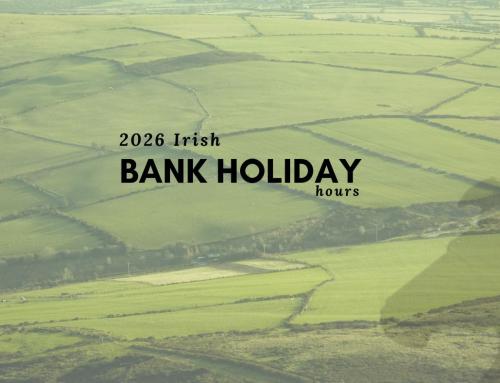The Chief Executive of IE Domain Registry (IEDR), David Curtin, has said that the .IE domain will remain protected against fraud and abuse, in the event of the registry’s adoption of proposals which would see a liberalisation of the current rules.
Under the current rules, to register a .IE domain name, an individual or business must prove that they have:
- A real and substantive connection to the island of Ireland, as well as
- A valid claim to the desired name.
A proposal to retain the connection with Ireland, but remove the second requirement, was approved by a committee of stakeholders earlier this year, and is currently the subject of a public consultation.

David Curtin, Chief Executive of the IE Domain Registry
IEDR CEO David Curtin says that the policy change will lead to a faster, easier and more inclusive process for all eligible participants in the process, while retaining the essential authenticity of a .IE domain name.
“By removing this administrative requirement, registering a .IE address will be easier and faster, especially for new start-ups, and will further open up the .ie domain namespace to citizens, residents, clubs, communities and businesses”
Some argue that the current stringent requirements enhance the trustworthiness of .IE addresses, making them less likely to be used for nefarious purposes such as phishing attacks. But Mr Curtin points out that registrants will still be required to prove their identities in order to satisfy the requirement for an Irish connection. While the change will make it more straightforward to register a .IE domain, the namespace will remain protected and ‘identifiably Irish’.
“Unlike a .COM address, where the registration is immediate and unchecked, every .IE registrant will still need to prove their link to Ireland before their application is approved, so for individuals this would involve photo identification, like an Irish passport. This process drastically reduces the chances of fraudsters and phishers using a .IE address for criminal purposes. It’s simply too much effort and expense for them, and too easy to get caught out.
“Protecting .IE domain holders has always been IEDR’s first and foremost priority, and that has not changed. Together with industry channel partners, law enforcement and regulatory agencies, we already have in place many protections to safeguard the .IE namespace against hacking and malware hosting, and we are constantly updating our own technology and best practice to ensure that the namespace remains secure”
Furthermore, Mr Curtin pointed out, the .IE domain is also governed by legislation on trademarks and intellectual property rights.
“In instances where consumers believe that a .IE domain has been unfairly or improperly registered by a third party, or where it impinges on a brand or IP right, perhaps for the sole purpose of ‘brand cyber-squatting’, IEDR operates an independent dispute resolution service.”
The proposed change is backed by Irish domain registrars such as Blacknight.
“In a great number of cases, we find that a simple declaration by a registrant of their intention to launch a product or project with a specific name, is sufficient to satisfy the IEDR’s requirements for the ‘claim-to-the-name’, explained Blacknight CEO Michele Neylon.
“The Policy Advisory Committee were in unanimous agreement that this requirement is unnecessary and offers no protection that is not already provided by other rules and legislation.”
The domain liberalisation policy change has already been approved-in-principle by IEDR’s Policy Advisory Committee (PAC) and other key .IE domain stakeholders, and by the IEDR Board of Directors. Subject to final consensus following this public consultation, it is envisaged that the policy change will come into force in early 2018.
Members of the public interested in submitting their opinions on IEDR’s proposal should visit iedr.ie/public-consultation by 30 September.







Comments are closed.